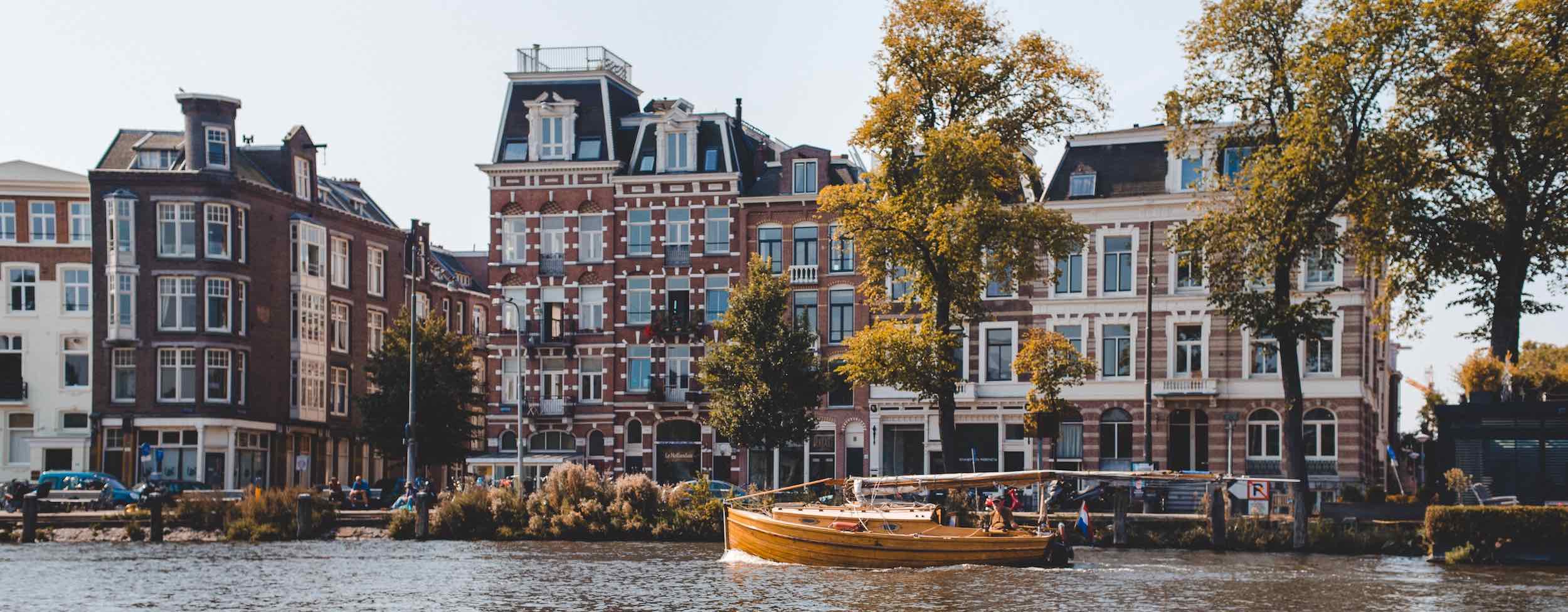
LL.M. International Technology Law
at VU Amsterdam
Summary
Technology creates situations that were the stuff of fantasy when most of our laws were created. Robots, biotech, autonomous vehicles and weapons, and the endless amassing and crunching of data – what does it mean to be a human being? And how do we relate to each other and to the natural world? These are questions we are forced to ask ourselves again in the face of technological progress. Law shapes and reflects the answers that we find.
Alongside core courses in international technology law, and big data, human rights and security, you will choose from subjects including: international weapons law, biotech and law, robots and artificial intelligence, and blockchain and disruptive tech.
You will be part of an international and diverse group of teachers and students interested in exploring the frontiers of regulation and technology, and you will graduate as a specialist with in-demand knowledge and skills.

Skills on graduation and future ahead
You will have an overview of the major fields where law and technology interact and be familiar with the core legislation and legal principles; you will have in-depth knowledge of the law concerning data and privacy, as well as a number of other fields, such as e-commerce, bioethics, cybersecurity, robot and algorithm law, blockchain law, and regulation of tech giants. You will be able to do research and present oral and written arguments in these fields, and you will be aware of how technology law is created and shaped, and the issues it will face in the coming years. You will therefore be able to advise clients, make legal arguments, or conduct research, within the field of technology law. Your knowledge will be primarily of the law applying in the Member States of the EU, but you will also be aware of global trends, and differences and similarities with the US.
As an ITL graduate, you will use, develop or research the regulation of emerging technologies. Typically, you will work in law firms, international organizations such as the UN, EU or international technology regulators, governments, or NGOs.
There are relatively few lawyers with a solid understanding and knowledge of the law concerning emerging technologies, so graduates will be part of a specialized and in-demand group.
The career opportunities are as fascinating as they are wide-ranging. After graduating, you will be prepared for a career in:
- Law firms – both large commercial firms and smaller specialised ones, including technology, IP and human rights firms.
- Industry, banking or commerce – as a legal advisor dealing with privacy, cybersecurity, data, blockchain, liability or other issues
- Government regulators – as a specialist helping regulate the tech industry
- University research or NGOs – contributing to further understanding and debate and technology and law
For more information, please consult our study guide.
Program
1. International Technology Law courses
You will follow these four courses:
2. Electives of the Specialisation
A choice of at least one of these courses:
3. Integration Courses
A choice of at least one of these courses:
Ask us your questions!
For more information on the ITL program, please visit www.vu.nl/itl. The ITL program is part of the general Master’s in Law at the VU. For more information about admission to the Master’s in Law, please see https://vu.nl/en/education/master/law/admissions. If you have any other questions about the ITL program, don’t hesitate to contact us! Sarah Eskens: s.j.eskens@vu.nl
Research Talent Track
Are you looking for an extra academic challenge, next to this one-year Master’s programme? Are you interested in research? The Research Talent Track might be a good fit for you as well. It’s a selective programme aimed at motivated and talented masterstudents who want to further develop their analytical research skills. You will learn and experience how to do scientific research. This will help you in deciding whether you want to pursue a career in the academic world, and/or will improve your opportunities on the labour market outside academia.
Internship opportunities
Doing an internship is a good way to figure out what career path you want to take. During your internship, you will gain relevant work experience which will increase your chances of finding the right job.
The Law programme does not require you to do an internship. However, you are encouraged to do an internship, for example, at one of the following organisations:
- law firm
- public prosecutor’s office
- court clerk’s office
- notary’s office
- police department
- private company
- government agency
You can also gain international experience by doing an internship abroad. In general, you will take the initiative for your own internship. You will receive guidance from a faculty supervisor, but the daily supervision will be provided by a supervisor from the organisation where you are conducting your internship.

